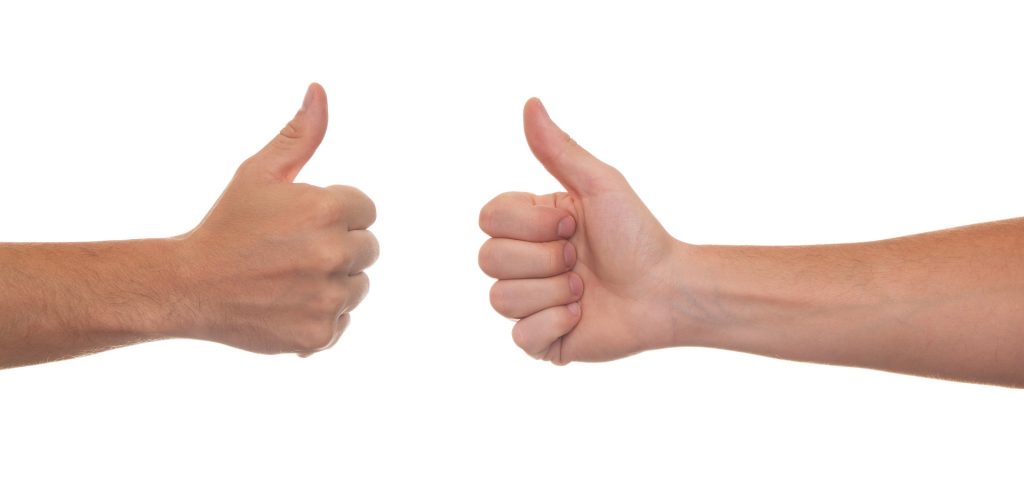
Visits: 63
The benefits of envy
While it’s one of the most reviled feelings, envy can even be helpful.
If we listen to this sentiment, it will tell us what aspects of our lives we can thrive in.
What is envy and how do we show it?
Envy is that unpleasant feeling we experience when faced with a person who seems to us to have what we don’t have, or have less and would like to have or have more: money, status, recognition and even happiness.
Envy does not necessarily have to do with power or material goods: one can envy the happiness of others, the other’s ability to have a good mood… And it is a universal phenomenon: in all cultures there are legends about kings and emperors who envied some trifles that his subjects possessed.
Envy warns us that we are incapable of savoring what we have.
There are various forms of envy.
Some are filled with hatred, such as when we envy a person we don’t like and feel a sense of injustice.
Other forms are less aggressive and mainly cause sadness (“Why shouldn’t I be right too?”) or guilt (“Why am I envious of someone who is so nice to me?”).
But, in any case, we must never forget that envy has nothing to do with lucidity to detect injustice, but with our inability to savor what we already have. And above all, envy is useless suffering.
It’s as if I ingested poison to make the other feel bad, rational madness!!!
The effect of envy: the inability to enjoy
Obviously the problem of envy does not come from others, from “who is luckier”, but from ourselves, from our inability to savor what we have. And accept what is. To accept ourselves as imperfect and incomplete.
Why do we feel envy?
The emergence of envy requires two conditions: first, an unfavorable social comparison between our advantages and those of another person, followed by a feeling of powerlessness to obtain what the other has.
Without this feeling of helplessness, we would not have envy but simply motivation to achieve the same thing. Hence the link with self-esteem: we envy what we don’t have, but only if we believe we are incapable of obtaining it on our own.
Derived from self-esteem problems, envy then produces a real vicious circle that makes us even more fragile, pushing us to continuous and psychologically toxic social comparisons.
In general, we envy people who are more or less close to us, with whom we can reasonably compare ourselves.
We are rarely mortified by envy of the lifestyles of people socially distant from us, such as millionaires or movie stars.
How to live our envy in a constructive way?
While we don’t consciously admit it, envy implicitly refers to the image of a self powerless to achieve what it is attracted to.
It facilitates the existence of a feeling of personal failure, which we can always mask with a rationalization of social injustice in the case of envy of the success of others (“This society is a disaster, if things like this happen…”).
But this remedy works with great difficulty and, most importantly, does not prevent the return of envy, even adding bitterness.
Sometimes we are tempted by gossip: we enjoy speaking ill of the people we envy! Criticizing others can relieve us on certain occasions, but on condition that we do it without getting too nervous, without believing it too much. And always that we end up laughing with our friends.
Another temptation is to criticize society and disguise envy with a discourse about intolerance and injustice.
Injustice is certainly a problem. But it’s a very different problem than our inability to bear that others have more than we do. More often than not, the success of others doesn’t take anything away from us, it’s our problem, not that of those who seem luckier to us.
But it is not easy to transform envy into indifference or even, why not, into benevolence. How do we start?
Train yourself to go from aggressive envy (“It’s so unfair that the useless got it”) or depressive (“I’m despicable for not having it”) to emulative envy (“How can I too get what triggered my envy?”).
Thus we will find one of the original and natural and, above all, beneficial functions of envy: the stimulus to action.
It’s also important to question envy and ask yourself fundamental questions: What am I missing? Is it really a necessity for me? If so, what can I do to try and achieve it? And if not, why do I torment myself?
It’s important that we don’t just suppress envy. It is best to recognize it and then transform it.
Our envy always lasts longer than the happiness of those we envy.
Let us then make an effort to understand and overcome the poison of envy: to get rid of it we must not obey it (run after the “always more” or the “always more”) but disobey it, fully savor what we have and then, and only then, see if we still feel the need for something else.
Originally posted 2023-03-15 11:26:10.


